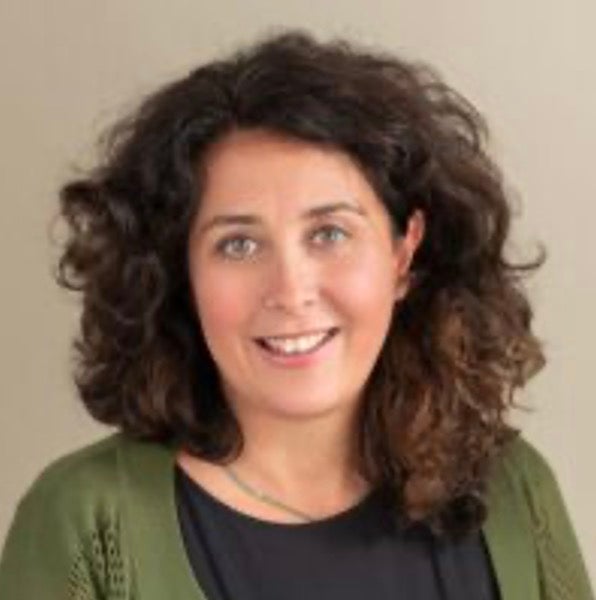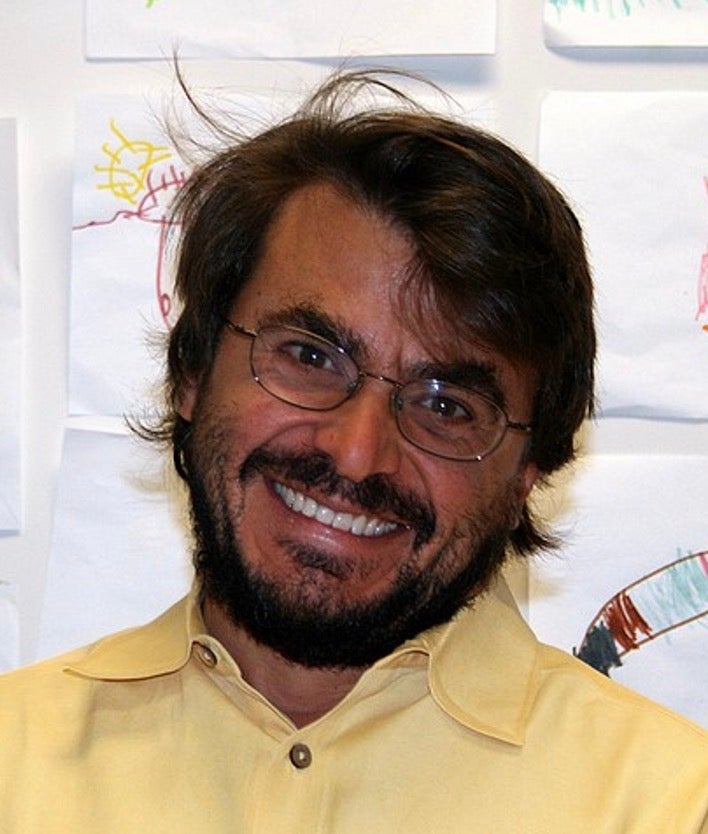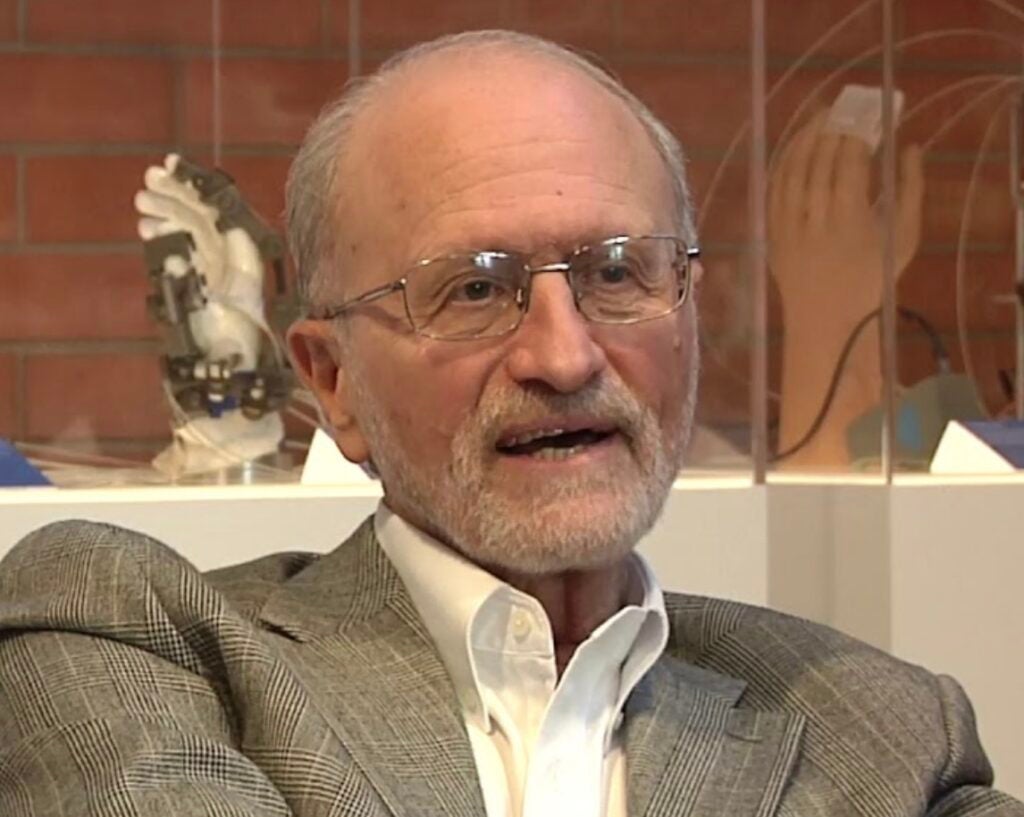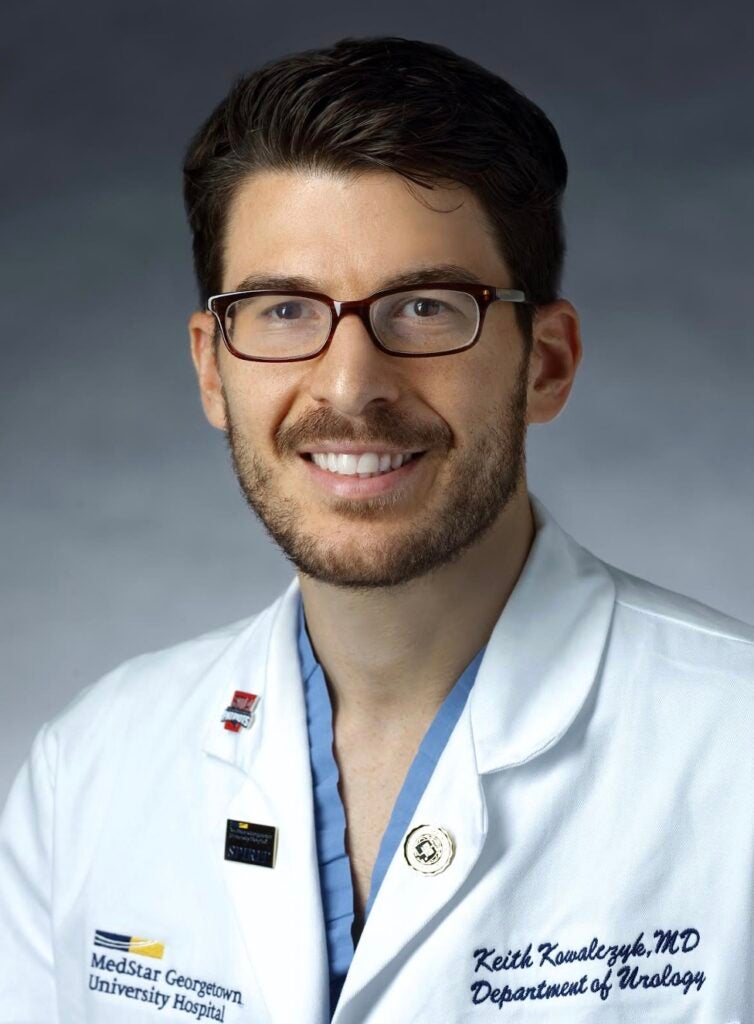2023 Events Archive
| Date | Event | Speaker(s) |
|---|---|---|
| April 11 | Brain and Behavior in Autism | Adriana Di Martino, MD |
| September 18 | Medical Robotics and Robotics Surgery | Paolo Dario, Dott. Eng & Dr. Keith Kowalczyk, MD |
Brain and Behavior in Autism
Tuesday, April 11, 2023 at 6 p.m.
Intercultural Center Auditorium
Georgetown University
In collaboration with the Embassy of Italy in Washington DC. and the Italian Cultural Institute of the Embassy, The Italian Research Institute of Georgetown University College is pleased to sponsor an event for Dr. Adriana Di Martino, an internationally known autism researcher and founder of the Autism Center at the Child Mind Institute in New York. She will speak on the neural connections in the autism spectrum and delineate the neurobehavioral landscape of autism. A discussion will follow her presentation moderated by Dr. Michael Ullman, Professor in the Department of Neuroscience at Georgetown University.

Adriana Di Martino, MD
Research Director, Autism Center
Dr. John and Consuela Phelan Scholar
Senior Research Scientist at the Child Mind Institute
Adriana Di Martino, MD, is an internationally recognized autism researcher and the founding research director for the Autism Center at the Child Mind Institute.
Dr. Di Martino has a long-standing research interest in autism spectrum disorder and how to best understand its neurobiology using brain imaging and a range of other clinical and cognitive approaches. Her study places a particular emphasis on detecting autism-related differences in brain connectivity that emerge in early childhood, with the goal of identifying objective biological markers that can one day be used to improve early intervention efforts and the selection of treatments.
In order to accelerate the pace of autism research, Dr. Di Martino established and directs the Autism Brain Imaging Data Exchange (ABIDE), which aggregates and shares functional and structural brain imaging data from laboratories around the world. The datasets made available to the scientific community by ABIDE have attracted a broad range of researchers to the study of autism, with expertise ranging from neuroscience and psychology to statistics, mathematics and engineering. New insights are emerging though the studies of ABIDE at a rate of more than a publication per month.
Dr. Di Martino is also a leader in efforts to recognize and understand overlaps in the neural bases of other neurodevelopmental conditions that commonly co-occur with autism, such as attention-deficit hyperactivity disorder. Insights from this work are helping to provide a better understanding of differences in the clinical presentation of autism among individuals, as well as variations in the responses of treatment.
Dr. Di Martino is one of our nation’s most prolific researchers in the neuroimaging of autism, with publications in the most scientifically respected journals in the field of psychiatry, including the JAMA-Psychiatry, American Journal of Psychiatry, Biological Psychiatry and Molecular Psychiatry. She has also received honors and funding support from the National Institute of Mental Health (NIMH) and the Simons Foundation and has been invited to lecture at multiple national and international scientific conferences.
Moderator

Michael Ullman, Ph.D
Professor
Department of Neuroscience
Georgetown University
Dr. Michael Ullman is Professor in the Department of Neuroscience at Georgetown University, with secondary appointments in the Departments of Neurology and Psychology. He is Director of the Brain and Language Laboratory and the Georgetown EEG/ERP Lab, and Director of Medical Neuroscience at Georgetown University Medical School. He teaches undergraduate, masters, Ph.D, and medical students. His research examines the brain bases of first and second language, math, reading, and memory; how these domains are affected in various disorders (e.g., dyslexia, developmental language disorder, autism, aphasia, Alzheimer’s, Parkinson’s and Huntington’s diseases); and how they may be modulated by factors such as genetic variability, sex, handedness, and aging.
Medical Robotics and Robotics Surgery
Monday, September 18 at 6:30 p.m.
Reiss Building, Room 112
Georgetown University
In collaboration with the Embassy of Italy in Washington DC and the Italian Cultural Institute of the Embassy, The Italian Research Institute of Georgetown University College is pleased to sponsor an event on Medical Robotics and surgical Robotics featuring two great scholars: Dr. Paolo Dario from Pisa, Italy, and Dr. Keith Kowalczyk from Georgetown University MedStar Hospital. Dr. Dario will speak on his research on biomedical robotics and share with us how, by mainly focusing on the development of artificial bionic limbs in hands and arms, his work has given real amputees the use of bionic hands. Dr. Keith Kowalczyk will offer an overview of the evolution of surgical robotics, from its initial development to its current applications. He will examine how these advancements have sometimes improved surgical procedures and outcomes but also consider instances where they may not have had the desired impact. Marco Gilli, Science Counselor, Embassy of Italy, is the moderator and discussion leader.
“Science and Engineering in Medical Robotics: From Aspirations to Reality“
featuring

Paolo Dario, Dott. Eng
Professor of Biomedical RoboticsScientific Director of the National Competence Center ARTES 4.0, Scuola Superiore Sant’Anna, Pisa, Italy
Paolo Dario is Emeritus Professor of Biomedical Robotics at the Scuola Superiore Sant’Anna, Pisa, Italy. He has received a Laurea Degree in Mechanical Engineering from the University of Pisa and a MS HC in Biomedical Engineering from the University Campus Biomedico in Rome. He has been and is professor and fellow at various universities and scientific institutions worldwide. Currently, he serves as Chief Scientist at Dubai Fut Cempetence Centerure Labs. His current research interests are in the field of bio-robotics, bionics, and companion robots. Paolo Dario has coordinated many large national and European projects, and served in many EU Committees. He is the Scientific Director of the National Competence Center ARTES 4.0 on Industry 4.0, and the Coordinator of the European Digital Innovation Hub ARTES 5.0. Paolo Dario is an IEEE Life Fellow and the Founding Editor-in-Chief of the IEEE Transactions on Medical Robotics and Bionics. He served as President of the IEEE Robotics and Automation Society, chaired several IEEE Conferences and received several prizes and Awards, including the 2017 IEEE RAS Pioneer Award for Biorobotics and the 2024 IEEE Technical Field Award for establishing and advancing Bionics and Biorobotics. His research accomplishments have led to the creation of several start-up companies, and to several practical applications in medical robots and medical bionics.
“A Brief History of Surgical Robotics: Evolution and Impact”
featuring

Dr. Keith Kowalczyk, MD
Physician Executive Director of MedStar Health Urology, Chair of the Department of Urology at MedStar Georgetown University Hospital and Chair of the MedStar Robotic Surgery Service Line
Dr. Keith Kowalczyk is the Physician Executive Director of MedStar Health Urology, Chair of the Department of Urology at MedStar Georgetown University Hospital, and Chair of the MedStar Robotic Surgery Service Line. Based in Washington, D.C., he is a board-certified urologist with specialized training in urologic oncology and robotic-assisted surgery. Dr. Kowalczyk serves patients at MedStar Pasquerilla Healthcare Center in Georgetown and the Chevy Chase clinic.
Focused primarily on the treatment of kidney, testicular, bladder, and prostate cancers, Dr. Kowalczyk offers a breadth of surgical options. He was an early adopter and proponent of pelvic-fascia sparing, also known as Retzius-sparing, robotic prostatectomy. As one of the highest-volume surgeons in this technique and among the first to perform this surgery in the United States, he has published extensively on this groundbreaking approach. While proficient in traditional open surgery, Dr. Kowalczyk holds specific expertise in robotic-assisted procedures. He is one of the few surgeons in the D.C. metropolitan area with this specialized skill set. He has completed hundreds of robotic surgeries. His adoption of robotic technology allows for an extended range of motion and unparalleled surgical precision.
In addition to his clinical work, Dr. Kowalczyk is a dedicated researcher, primarily focusing on improving and standardizing surgical techniques. He is funded by the National Cancer Institute (NCI) and the Patient-Centered Outcomes Research Institute (PCORI) to study prostate biopsy and prostatectomy outcomes. His dual role as Chair of the Urology and Robotic Surgery Service Lines at MedStar places him at the forefront of integrating innovative surgical techniques into comprehensive cancer care. As a leader in his field, Dr. Kowalczyk actively participates in health services research, including studies on cancer treatments, patient outcomes, and healthcare economics. He has contributed to numerous peer-reviewed articles centered on these important subjects.
